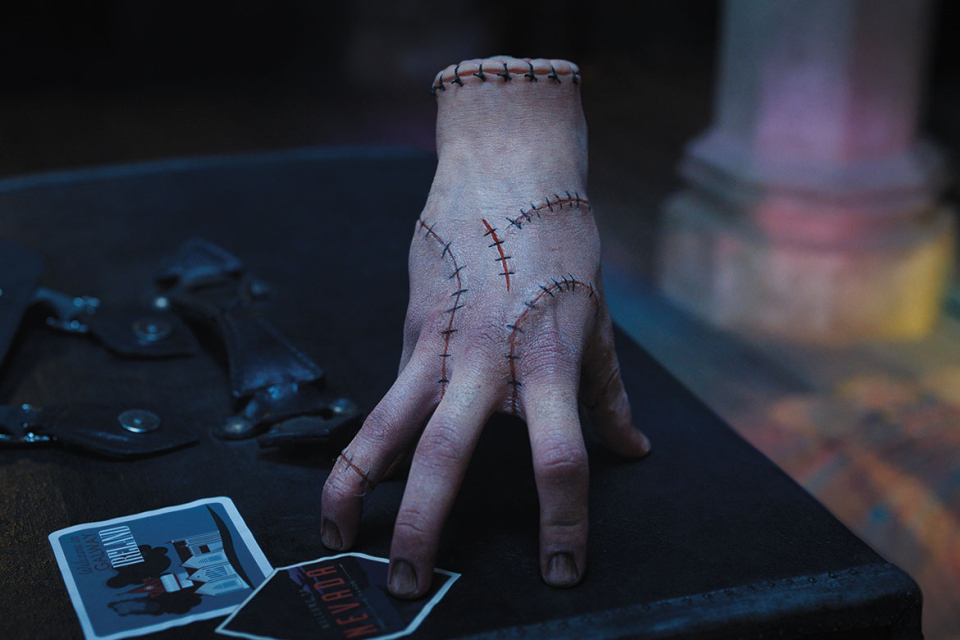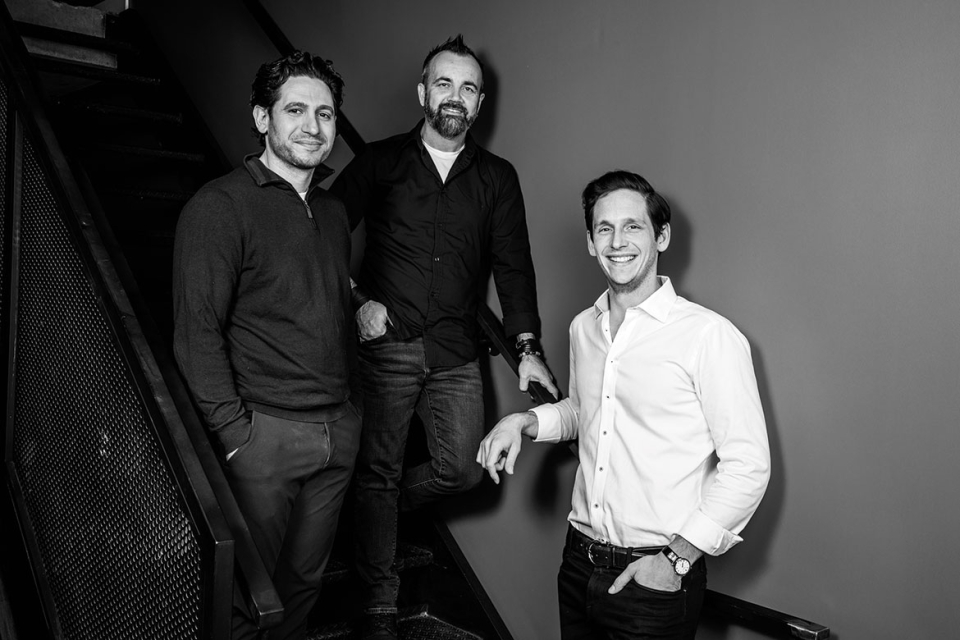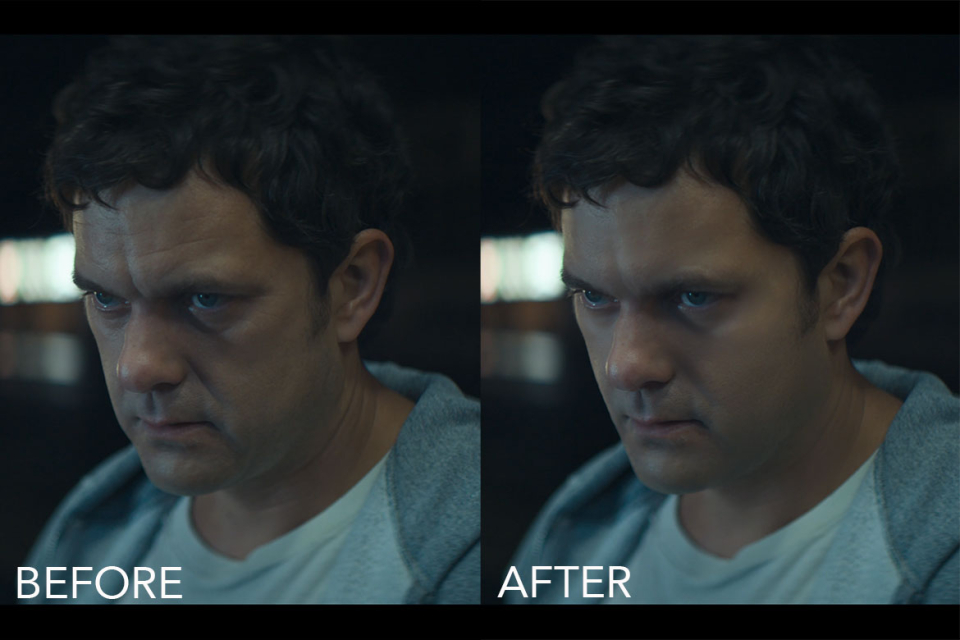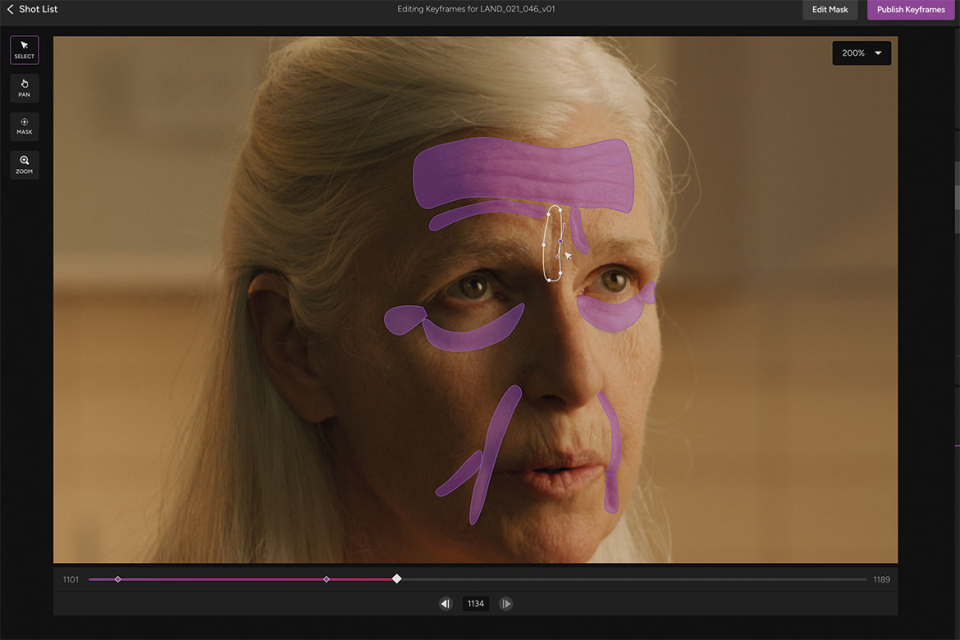Few showbiz companies have names as fun as VFX house Monsters Aliens Robots Zombies, aka MARZ. You've doubtless seen the firm's work; it recently helped make Thing, a disembodied hand, come alive on Netflix's Wednesday. While magician Victor Dorobantu's right hand did most of the work, the trick was to make the CGI seamless with the real. That's where MARZ came in.
"Tim Burton wanted to try to keep it as practical as possible," MARZ's Lon Molnar says of the executive producer-director. "I'm a big fan of that, but when it's almost impossible — like when Thing might be interacting or walking, standing on Wednesday's shoulder or leaping up to the car or whatnot — that's where we come in."
Founded in 2018 by CEO Jonathan Bronfman, CCO Lon Molnar and COO Matt Panousis, the Toronto-based company has since branched out from standard VFX work to technical innovation. It's created a new technology called Vanity AI that streamlines the de-aging process that's suddenly everywhere in TV and film. Previously, a technician would have to paint every frame of a sequence, but Vanity can start with a reference point and then retouch a full sequence on its own.
"What we're trying to do is speed up VFX, make it more affordable and add more capacity to the industry," Panousis says. "The quality, of course, must also be Hollywood level. So, you can speed up VFX, you can make it more affordable, you can add capacity, but if the results are bad, it's moot. No one cares."
The MARZ leadership team decided to explore AI when it became clear that, for the firm to succeed, it would need to expand to other cities in tax credit-friendly regions, which meant poaching talent from other companies in what would be a constant struggle to maintain a status quo.
Or it could build its own technology.
"It was a time-consuming process," Molnar says. "And we were being asked, as the market is expanding, where are we going to find the talent to do it? So, we needed to find automation solutions to be able to do it and support the talent."
After using AI on the Disney+ show WandaVision, MARZ moved forward with Vanity and found success after more than three years of development. They've used the process many times since, sometimes to paint out an actor's flaws, other times to aid flashbacks for storytelling. The team demurs when asked about the former but offers an example of the latter: the Peacock series Dr. Death used Vanity to de-age star Joshua Jackson for flashback sequences.
Lest you think this new system might cost jobs or remove technicians from the process entirely, Panousis stresses two facts. First, he says, "The whole industry is stretched very thin right now. The quality bar has risen so dramatically in TV, it now needs to look like film but without the higher budgets, and oh, by the way, we're going to produce more than we've ever produced at any point in history." With VFX now so integral to every piece of content, manpower across the whole industry is at a premium.
The second fact is just as important: they designed a system that requires the human factor. "We could have built Vanity in such a way where it would be 'click a button,'" Panousis adds. "But there wouldn't be consistency among shots or that fine-grained control that clients request. So, we purposely built the control element that requires human input."
As MARZ rolls out Vanity via licensing deals, the firm is working on a new piece of technology it hopes to introduce this year. LipDub AI will allow studios to take dubbed content and make speakers' lips automatically match the audio. The goal is to make dubbed content less distracting to viewers.
"That's the definition of operating leverage," Panousis says. "Build something once, scale it across the globe."
This article originally appeared in emmy magazine issue #7, 2023, under the same title.





